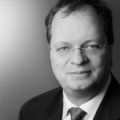
- This event has passed.
The German Energy Transition: Debating Implications for New York State
On April 29th, the Guarini Center on Environmental, Energy and Land Use Law and the Ecologic Institute hosted a discussion about the German Energiewende (Energy Transition). This event provided an opportunity to speak with experts with first-hand insight into the Energiewende and lessons it may hold for policymakers in New York State as they pursue their own comprehensive energy reforms.
Wednesday, April 29, 2015, 11:00AM – 12:30PM
NYU School of Law
Lipton Hall, D’Agostino Hall
108 West Third Street
New York, NY 10012
Speakers:
Chris King, Global Chief Regulatory Officer, Smart Grid Services Siemens AG
R. Andreas Kraemer, Founder & Director Emeritus, Ecologic Institute in Berlin, Germany; and Founding Chairman, Ecologic Institute US
Georg Maue, First Secretary for Climate and Energy Issues, German Embassy
Michael Mehling, Executive Director, Center for Energy and Environmental Policy Research, Massachusetts Institute of Technology
Eleanor Stein, Advisor for Special Projects, New York State Public Service Commission
Justin Gillis (moderator), Reporter, New York Times
 This event was made possible by the generous support of the German Embassy in Washington DC and the Transatlantic Climate Bridge Program.
This event was made possible by the generous support of the German Embassy in Washington DC and the Transatlantic Climate Bridge Program.
Ecologic Institute is a transdisciplinary research organization focusing on environmental issues.
Speaker Bios:
Justin Gillis is a reporter for The New York Times who covers environmental science, with a special focus on climate change. He was the author of a Times series called Temperature Rising that ran from 2010 to 2013 and updated readers on major developments in climate science, winning the John B. Oakes Award for Distinguished Environmental Journalism from Columbia University. He was also the principal author in 2014 of a series called The Big Fix that critically examined proposed solutions to climate change. One article in that series analyzed the Energiewende and the lessons it might offer for countries like the United States.

Chris King is Global Chief Regulatory Officer, Smart Grid Services for Siemens AG. He is responsible for policy-oriented and strategic activities, including market analysis and product strategy, sharing his 30 years industry experience with regulators and legislators worldwide. He is co-founder and Chair of the Brussels-based Smart Energy Demand Coalition and on the Board of the Smart Grid Consumer Collaborative, Association for Demand Response and Smart Grid, and Silicon Valley Leadership Group. He is author of numerous industry articles, book chapters, and other publications on consumer response to dynamic pricing, effects of energy information feedback, smart grid business case, and advanced metering and related technologies. Mr. King, who has testified before the U.S. Congress on grid modernization issues, holds masters degrees in science and business from Stanford University and a doctorate in law from Concord Law School.

R. Andreas Kraemer is Founder & Director Emeritus of Ecologic Institute in Berlin, Germany and Founding Chairman (pro bono) of Ecologic Institute US in Washington DC. He is currently Senior Fellow at the Institute for Advanced Sustainability Studies (IASS) in Potsdam, Germany, Visiting Scholar at the Massachusetts Institute of Technology (MIT), Center for Energy and Environmental Policy Research (CEEPR), and Visiting Assistant Professor of Political Science and Adjunct Professor of German Studies at Duke University. His research focuses on the role and functions of science-based policy institutes or “think tanks” in theory and the practice in different political systems, the interactions among policy domains and international relations, and global governance on environment, resources, climate and energy.
With a strong background in institutional analysis and capacity building for sustainable development, environmental policy, and resource management, R. Andreas Kraemer focuses on integrating environmental concerns into other policies, notably EU General Affairs and external relations, including trade, development, foreign affairs, and security policy as well as the international fight against environmental crime. He is particularly engaged in strengthening Trans-Atlantic relations and cooperation in the wider Atlantic on environment, climate, and energy security.
Andreas was born in Dortmund, Germany, and was trained in industrial business management in the petrochemical industry before studying environmental engineering and sciences at the Department of Environmental Technology of the Technische Universität Berlin and the Université des Paris Diderot.
 Georg Maue serves as First Secretary for Climate and Energy at the German Embassy in Washington, DC.
Georg Maue serves as First Secretary for Climate and Energy at the German Embassy in Washington, DC.
Prior to joining the Embassy, Georg worked at the German Federal Ministry for the Environment, Nature Conservation, and Nuclear Safety, with responsibility for climate and energy policy and various international environmental topics at the German Environmental Protection Agency. He collaborated on the ministry’s development of recent energy policies targeted at moving the German energy system in a cost-effective manner towards greater use of renewable energies and higher efficiency.
Georg holds an engineering degree in environmental technologies and received his PhD in microbiological treatment of contaminated soils, from the Technical University of Berlin.

Michael Mehling is Executive Director of the Center for Energy and Environmental Policy Research at the Massachusetts Institute of Technology (MIT).
Michael Mehling helps coordinate research across MIT on the policy dimensions of energy, climate change, and the environment. He simultaneously holds appointments as Research Scientist with the MIT Energy Initiative (MITEI), and as Visiting Professor with the University of Strathclyde. Previously, he was President of the Ecologic Institute in Washington DC, an environmental think tank with partner offices in Berlin and Brussels, and held research and teaching posts at Georgetown University and the Universities of Greifswald, Helsinki and Constance. He also is the founder and editor-in-chief of the Carbon & Climate Law Review (CCLR), the first academic journal focused on legal aspects of climate change. He is a German attorney registered with the Bar of Berlin, and has advised various German companies and the German government on issues of environmental and energy law.
 Eleanor Stein is Advisor for Special Projects at the New York Public Service Commission.
Eleanor Stein is Advisor for Special Projects at the New York Public Service Commission.
Eleanor Stein is currently tasked with project managing the REV proceedings at the New York Public Service Commission and is also pursuing an LLM in Climate Change Law at the University of Strathclyde, in Glasgow.
For a period of ten years Eleanor Stein was the New York State Public Service Commission Administrative Law Judge in Albany, New York presiding over the Energy Efficiency Portfolio Standard proceeding; she also presided over New York’s Renewable Portfolio Standard proceeding until 2004. This was a collaboration and litigation of over 150 parties, authoring in June 2004 a comprehensive decision recommending a landmark state environmental initiative to combat global warming with incentives for renewable resource-fueled power generation. From 2004-2006 Judge Stein was visiting associate professor at Albany Law School teaching transnational environmental law, telecommunications law, and other subjects; she is currently an adjunct professor teaching the law of climate change. She has published and lectured on climate change and renewable energy.

